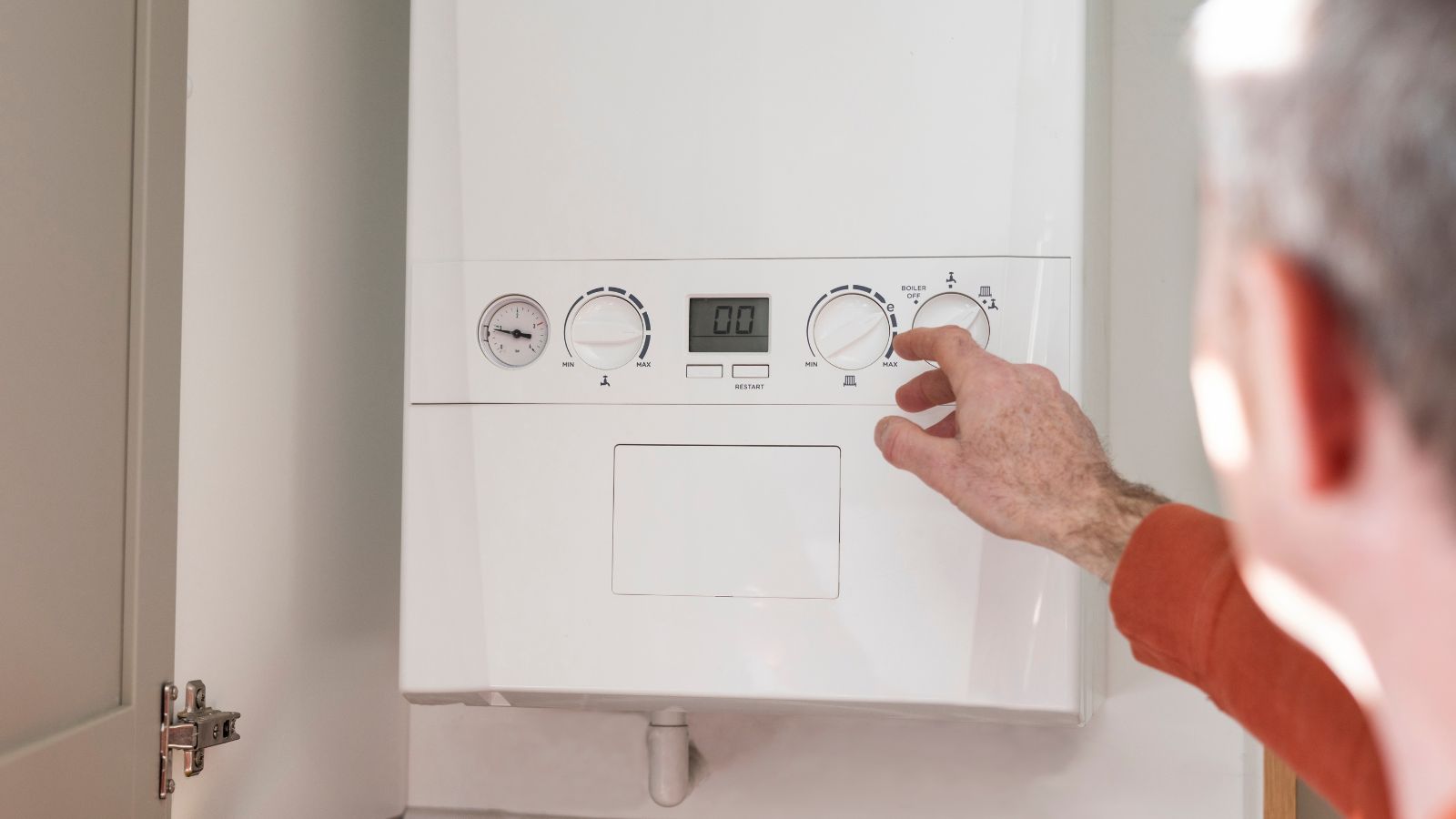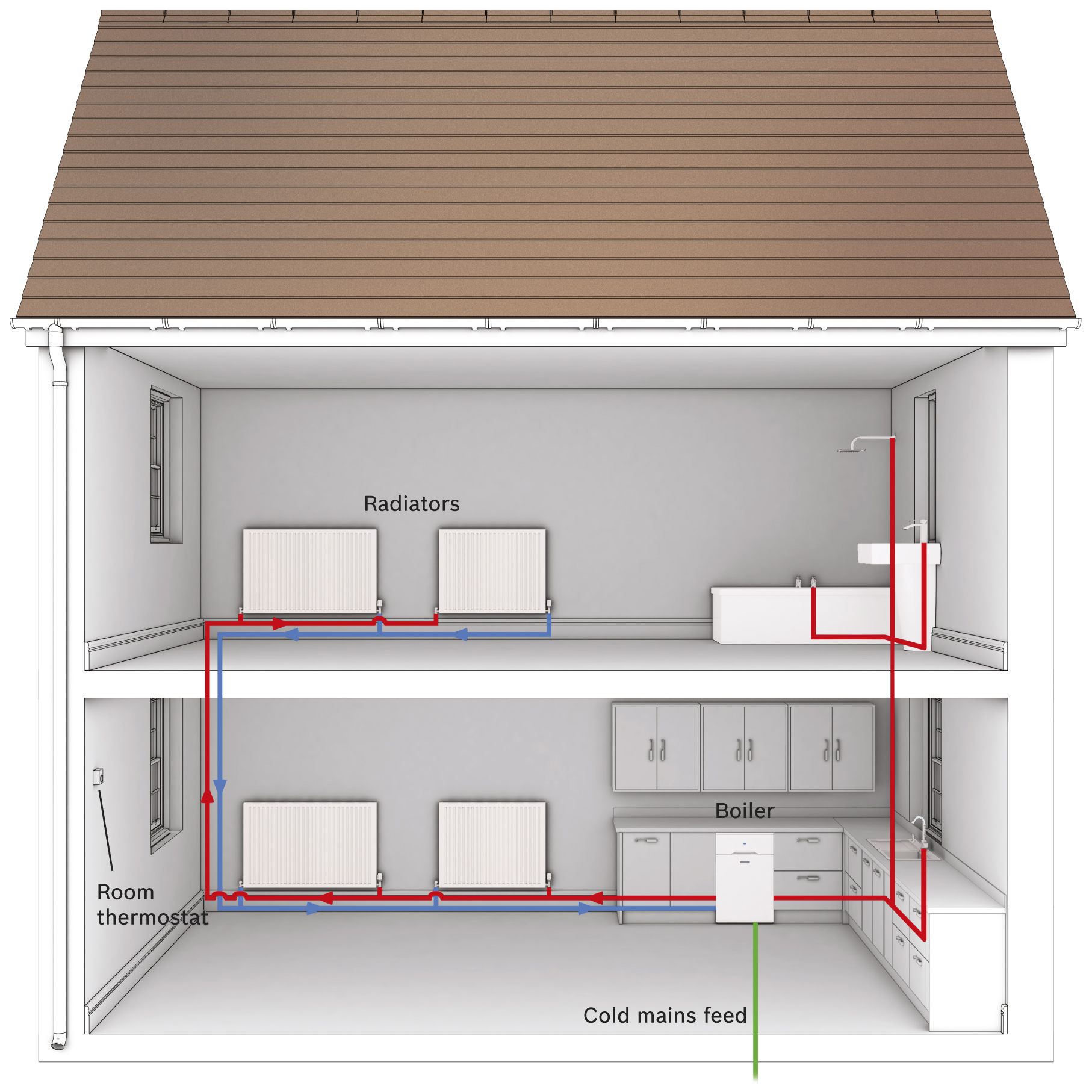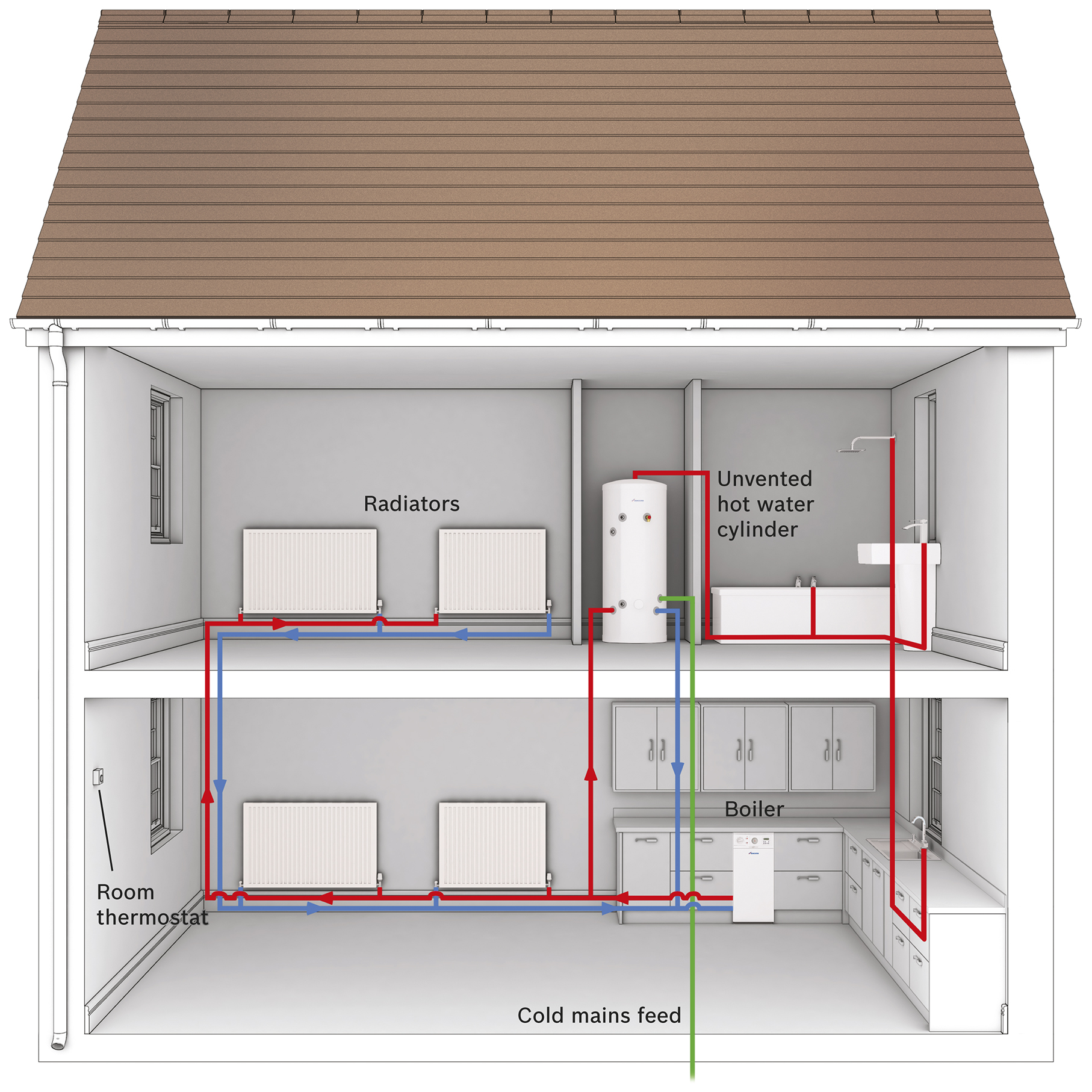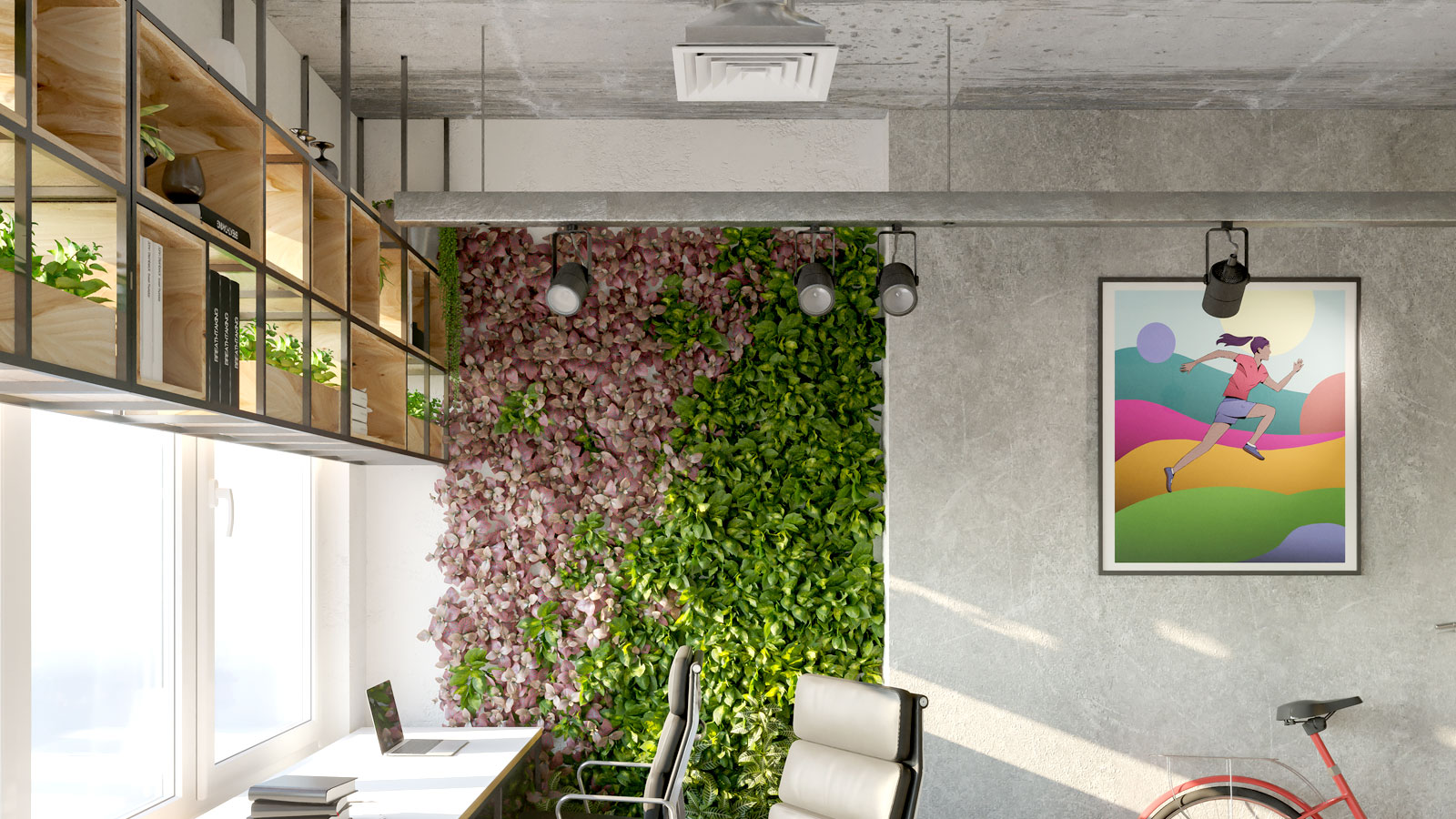Combi vs system boiler — which one suits your home and lifestyle best?
We compare two popular types of boiler to discover which is best for your household needs and demands

When it comes to heating your home, choosing the right boiler is a decision that can make all the difference – especially in the face of rising energy costs. Boilers play an integral role in heating our homes, so finding one that perfectly aligns with your household’s size, needs, and lifestyle is crucial.
But with so many options available, deciding between the different types of boiler, can feel overwhelming. There’s no one-size-fits-all answer, as factors like available space, water pressure, and installation costs all come into play.
That’s why we’ve turned to energy experts to break down two of the most popular options: combi vs. system boilers. In this guide, we’ll explore their differences and help you determine which option will deliver the most comfort and efficiency for your home.
What is a combi boiler?

A combi (combination) boiler is a space-saving solution, delivering both heating and hot water on demand without the need for a bulky hot water cylinder or cold water storage tank. Because combi boilers draw water directly from the mains, they are an excellent choice for homes with limited space and lower hot water demands – making them ideal for smaller households or apartments.
The main features of a combi boiler
- Compact size With a combi boiler, there is no need for additional water tanks or cylinders. Therefore, these units can be installed in kitchens, utility rooms, or inside cupboards.
- On-demand hot water Hot water is provided directly from the mains whenever required.
- Easy to install These systems are simple to install with less pipework compared to other systems. They are also faster and cheaper to install because they do not require additional tanks or plumbing.
- They are water pressure dependent Combi boilers rely on mains water pressure, so you may notice this affects their performance if you live in an area with low water pressure.
What is a system boiler?

A system boiler is designed to provide both heating and stored hot water, making these units perfect for homes where hot water demand is high. Using a hot water cylinder to store water, these boilers allow multiple taps or showers to run at once without any drop in water pressure. Unlike traditional boiler setups, system boilers don’t require a cold water tank, freeing up valuable loft space, and they can easily be integrated with renewable energy systems like solar panels.
The main features of a system boiler
- Hot water storage System boilers use a hot water cylinder to store water, ensuring you have a steady supply when needed.
- More space is required Although these units eliminate the need for a cold water tank, it does require a hot water cylinder, which can take up additional space.
- Better for low-pressure areas System boilers don’t rely on mains pressure for hot water supply.
- Solar compatibility These boilers can be integrated with solar thermal systems, offering potential long-term energy savings.
Comparisons: Combi vs system boilers
| Feature | Combi Boiler | System Boiler |
|---|---|---|
| Space Required | Compact unit, no need for cylinders or tanks, ideal for small spaces. | Requires space for a hot water cylinder, better suited to larger homes. |
| Instant / Stored Water | Provides hot water on demand directly from mains. | Stores hot water in a cylinder, ensuring consistent supply to multiple outlets. |
| Household Size / Demands | Best for small homes or apartments with lower water use. | Ideal for larger homes with higher water demands, multiple bathrooms. |
| Installation | Easier, lower cost. Typical total cost: £2,000 to £3,000. | More complex, higher cost due to hot water cylinder. Boiler: £700 to £1,200; Cylinder: £500 to £1,100. |
| Plumbing | Relies on mains water pressure—may not perform well in low-pressure areas. | Better suited for homes with lower mains pressure as it uses stored hot water. |
| Fuel Types | Available in gas, electric, or oil models. | Available in gas, electric, or oil models, but offers more compatibility with solar thermal. |
| Future Green Choices | Limited compatibility with solar or heat pump systems. | Compatible with solar thermal systems and better suited for future heat pump integration. |
Space requirements
Combi boilers take up significantly less space than system boilers since they don’t need a hot water cylinder or cold water tank. While system boilers do require a cylinder for storing hot water, neither option needs a cold water tank, allowing homeowners to reclaim valuable loft space for other uses, such as a loft conversion.
Efficiency
When it comes to efficiency, the best choice between combi and system boilers largely depends on your household’s size and water usage. For smaller homes with lower water demands, combi boilers are often the more efficient option. They heat water directly from the mains as needed, avoiding the energy needed to keep hot water stored and eliminating the potential for heat loss over time.
However, for larger households, system boilers offer an advantage by storing hot water in a cylinder, allowing multiple taps or showers to run simultaneously without a drop in pressure. Joanna O'Loan, knowledge manager at the Energy Saving Trust, explains, "System boilers are more efficient than combi boilers at producing hot water, but heat can be lost from the hot water cylinder over time."
Jo Alsop, Co-Founder of The Heating Hub, adds that system boilers can be just as efficient as combi boilers when equipped with the right controls. "Providing a system boiler is set up with weather or load compensation controls, they are just as efficient as a combi boiler." Another key advantage of system boilers is that, "You still have hot water if your boiler breaks down," Jo adds. "We can usually get by without heating for a few days, but going without hot water is miserable and requires visits to family and friends!"
While both types of boilers are highly efficient, combi boilers may have a slight edge overall due to the minor heat loss that can occur with a system boiler’s hot water cylinder.

Jo Alsop is Co-Founder of Warmur and The Heating Hub. She is a qualified chartered surveyor and ex-heating company owner. Having started a domestic heating business in 2007, Jo has amassed considerable experience of the UK’s domestic boiler market.

Joanna ensures that advice provided across Energy Saving Trust services is consistently of a high quality. She researches the latest energy trends and heating systems, develops training, supporting materials.
Installation ease and cost
According to Worcester Bosch's helpful boiler guide, combi boilers are generally easier and less expensive to install because they involve fewer components and less pipework, making them a straightforward choice for both new builds and replacements. System boilers, on the other hand, are more complex to install due to the additional hot water cylinder.
That said, both combi and system boilers are simpler to install than traditional setups since neither requires a cold water tank. However, installation costs may vary depending on the condition of your current plumbing system – particularly if significant upgrades are needed.
Costs
Combi boilers tend to have higher upfront costs, typically ranging from £1,000 to £2,000, but their simpler installation brings overall replacement costs to between £2,000 and £3,000.
In contrast, system boilers are generally more affordable, with unit prices ranging from £700 to £1,200, plus an additional £500 to £1,100 for the hot water cylinder. However, the more complex installation process raises overall costs.
Future Green Choices
As homeowners increasingly seek greener energy solutions, system boilers offer a key advantage. A hot water cylinder can store energy generated by solar panels, making system boilers a solid choice for homes looking to adopt renewable energy sources.
Jo Alsop, Co-Founder of The Heating Hub, also highlights that, "As 80% of UK households will move to heat pumps over the coming years, the majority of us will need a hot water cylinder again. My advice is not to remove a cylinder to fit a combi boiler – just swap the system or regular boiler instead, which will also be much cheaper!"
FAQs
Do I need a gravity fed water tank for a system boiler?
No, a system boiler does not require a gravity-fed water tank in the loft. Unlike traditional boilers, system boilers are pressurised and work with a hot water cylinder, eliminating the need for a cold water storage tank. This setup not only saves space but also removes the risk of pipework freezing in cold weather.
Do I need a system boiler if I want to install a heat pump?
While you don’t necessarily need a system boiler to install a heat pump, having one makes the transition much easier. Most heat pumps work in tandem with a hot water cylinder to store heated water, so if you opt for a combi boiler, you may need to reinstall a cylinder in the future if you decide to switch to a heat pump.
According to Joanna O’Loan, knowledge manager for Energy Saving Trust, "As part of the UK Government’s plan to reach net zero carbon emissions by 2050, fossil fuel heating systems will be phased out, making it a good time to consider low or zero carbon heating systems, such as heat pumps."
How do you know what size boiler you need?
According to the Worcester Bosch website, "You should chose the boiler with the correct output for your home, there is no need or benefit of choosing a higher output than you need." To help find a boiler with the right output for your home, they have created a helpful 'find a new boiler tool.'
If you are still undecided about the best type of boiler for your household, read our essential guide to choosing a new boiler to help you make a more informed decision.
Get the Homebuilding & Renovating Newsletter
Bring your dream home to life with expert advice, how to guides and design inspiration. Sign up for our newsletter and get two free tickets to a Homebuilding & Renovating Show near you.

Gabriella is an interiors journalist and has a wealth of experience creating interiors and renovation content. She was Homebuilding & Renovating's former Assistant Editor as well as the former Head of Solved at sister brand Homes & Gardens, where she wrote and edited content addressing key renovation, DIY and interior questions.
She’s spent the past decade crafting copy for interiors publications, award-winning architects, and leading UK homeware brands. She also served as the Content Manager for the ethical homeware brand Nkuku.
Gabriella is a DIY enthusiast and a lover of all things interior design. She has a particular passion for historic buildings and listed properties, and she is currently in the process of renovating a Grade II-listed Victorian coach house in the West Country.
